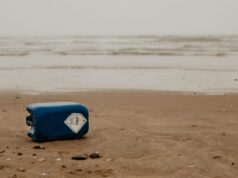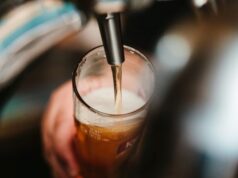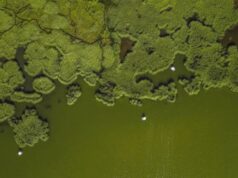Compounds extracted from mushroom waste.
Credit: Image courtesy of Asociación RUVID
More than 50,000 tonnes of mushroom waste are generated in Europe each week, posing an environmental challenge for the main industries that market this product worldwide. The University of Alicante Research Group in Polymer and Nanomaterial Analysis (NANOBIOPOL) participate in the European project Funguschain to obtain high antimicrobial and antioxidant substances from these residues applicable to sectors as varied as food, cleaning or plastics.
The Funguschain project seeks to obtain mushroom-based high valuable components from new processes using the cascading system, a method consisting of several similar processing steps in which the output of one stage feeds the next) Innovative and sustainable compounds for a wide range of products such as antimicrobial and eco-friendly cleaning solutions for household products, bioplastics for bags, film and gloves, or enriched food supplements for the elderly and sportsmen.
Led by Dutch company BioDetection Systems, the project brings together a total of sixteen partners including universities, research centres and companies from Spain, the Netherlands, Ireland, Germany, Italy, the United Kingdom, Belgium, Croatia, Sweden and Portugal.
The scientific committee of Funguschain is coordinated by University of Alicante NANOBIOPOL Group Director Alfonso Jiménez, who points out that “the project includes a four-year work and will lead to results that allow the integral valuation of mushroom residues and the resulting byproducts.” “Our ultimate goal is to obtain high added value, sustainable and innovative compounds for cleaning products, enriched food supplements and bioplastics for bags, plastic films and gloves,” he added.
Find your dream job in the space industry. Check our Space Job Board »
“The microwave-assisted extraction technique of antimicrobials, antioxidants, proteins, polyols and polysaccharides from the laboratories of the UA is being developed, which will be part of the subsequent processes for the cleaning, food and plastics sectors,” Jiménez explained.
Once the end products are retrieved after having been validated by the food companies, manufacturers of cleaning products and bioplastics connected to the project, the remains of the mushroom waste will be used for compost and biofuel “thus investing in a sustainable and innovative process and a self-sufficient economy by reusing farming products,” the scientific coordinator added.
The project, with a budget of €11 million, is co-financed by the Bio-based Industries Consortium under the European Union Horizon 2020 research and innovation programme.
NANOBIOPOL
The UA Research Group of Analysis of Polymers and Nanomaterials, created in 2008, is dedicated to the study of new biomaterials from natural sources and biodegradable characteristics. Since its creation, the group has been articulating an increasingly active presence in the area of biopolymers to contribute to the reduction of the amount of waste generated following the use of plastic materials, especially in the field of food packaging. Also, the development of new formulations of active systems for food packaging has in recent years been one of the most active lines within the NANOBIOPOL group. This group has published a good number of articles in international top-rated journals referring to the extraction of bioadditives from agro-alimentary residues of almonds, fruits or vegetables.
VIDEO. Process of extracting compounds from the mushroom made by the group NANOBIOPOL: https://youtu.be/KxsF9pqPydU
Story Source:Materials provided by Asociación RUVIDNote: Content may be edited for style and length.











